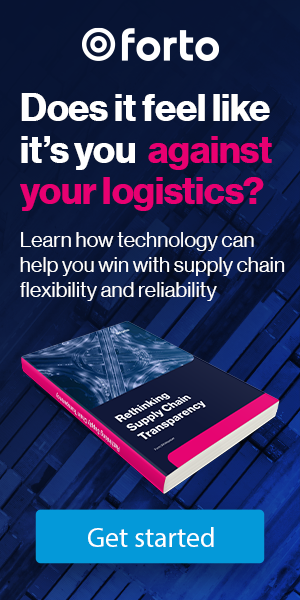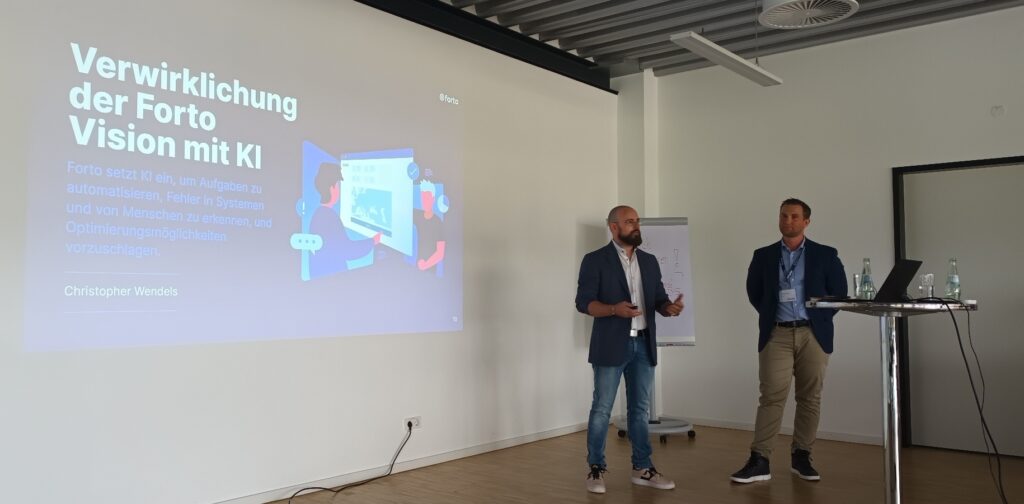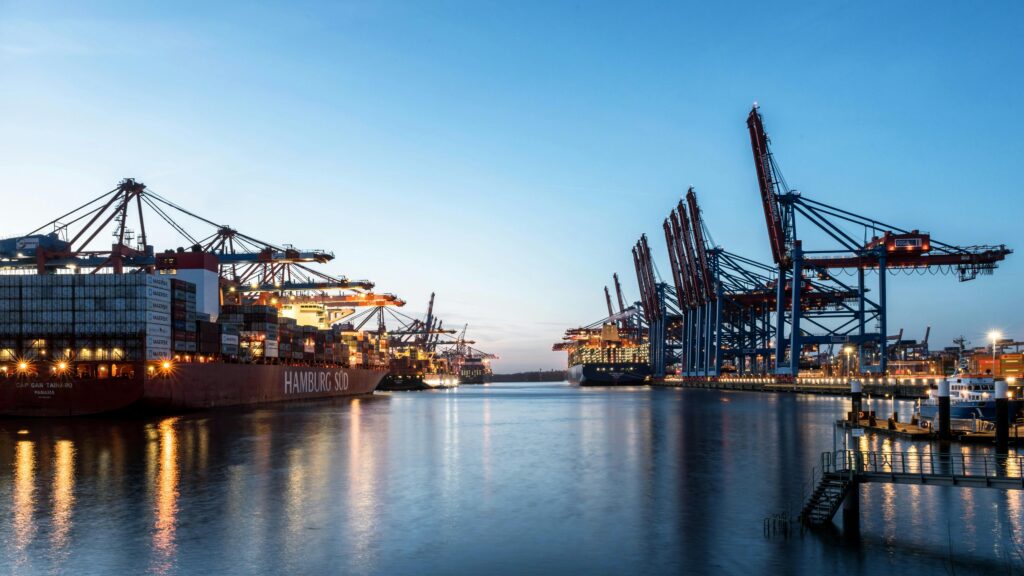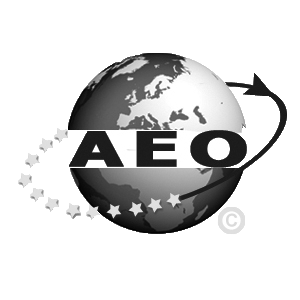Last time we already provided the first essential information around sustainability and climate neutrality to generate a basic understanding of the topic. Now it’s time to dive a bit deeper and to bring the spotlight to concrete actions you can take to drive your business forward to a climate neutral operating company. Not worth mentioning, one thing is more important than ever before: Reduce your emissions as much as possible. To improve your office energy efficiency, your business travel policy and to commit to purchasing goods and services in a responsible way are key steps to reduce a large amount of emissions. In the following, we will show you how easy it is to get there.
1. Office Energy
Office Energy is at the origin of a large proportion of a company’s overall emissions. It refers to purchased electricity, steam, heating and cooling for the own use of the company.
What to do?
- Switch to a renewable electricity provider: It is a simple procedure and can save a large amount of GHGs, especially in countries where the energy mix is still obtained from fossil fuels. Building an own solar plant installation on the building’s roof can also be a solution to reduce the impact from electricity consumed, and have not only energy but also cost savings.
- Change light bulbs for LED and invest in a lighting regulation system: LED bulbs are the most efficient lighting technologies on the market. They consume up to 75% less energy, and last 25 times longer, than incandescent lighting. Lighting regulation systems are useful to switch off the lights outside of working hours and when no one is in a room, and thus are energy and costs efficient!
- Use reasonable and renewable heating energy: Renewable heating energy can also save on average 6% of CO2e. Building insulation in an office is a mandatory step for responsible heating consumption, and infrastructure to schedule heating and cooling only in working hours can also support having more efficient energy consumption.
- Lower air conditioning use: Air conditioning is a big polluter and is one of the largest sources of emissions for a company. Using insulation as well as thermostat regulations can help to reduce these emissions.
- Purchase goods based on their energy score: Buying responsibly is an efficient solution to save CO2e emissions. Companies can select the goods that have the least energy consumption and pay attention to the energy label of the products.
Did you know? In Germany, the use of renewable energy sources helped to avoid 227 Million tonnes of GHGs emissions from being released into the atmosphere in 2020, including savings from both electricity, heating, and transport. Having a responsible and efficient energy behavior will not only avoid CO2e emissions but also enable cost savings, better for the environment and for the budget!
Our tips in a nutshell:
- Switch a green energy provider, for both electricity and heating
- Build your own solar installation
- Use LEDs bulbs and lighting regulation system
- Strengthen your building insulation
- Regulate the use of heating and cooling by investing in a thermostat regulation system
- Close the windows when using heating or cooling to avoid loss of energy
- Purchase energy efficient goods only
2. Business Travel
Business travels are one of the most polluting indirect sources of a company. That does not only include long travel from business meetings, from a country to another or from city to city, it also relies on the employees daily commuting.
What to do?
- Establish a responsible business travel policy: Companies should always prefer train travels overflights, especially for domestics trips. Flights should always be avoided when an alternative can be found, and Economy Class seats should be preferred over Business Class. Encouraging employees to organize car sharing can also be a more eco-friendly solution. However, whenever car use can be avoided, public transportation is always the most efficient solution, and enables your employees to work while commuting!
- Encourage employees to commute by bike or public transport: Companies should make sure that offices are located in spots with easy and diverse public transportation connections. To avoid employees from using their own car, companies should financially support their employees to get transport or bike subscriptions. A car sharing internal app can also help employees to avoid driving alone and save emissions.
- Promote digital conferences and home office: By encouraging virtual meetings, companies can reduce the environmental impact of every single employee and avoid many travels with high carbon impact.
Did you know? Aviation alone accounts for about 2% of carbon emissions worldwide, approximately the equivalent of the overall emissions of Germany. Within Europe, choosing rail travel instead of flights can help you save up to 90% CO2e.
Our tips in a nutshell:
- Minimize air travel and prefer train journeys
- Encourage train travels and public transportation in general
- Ban Business Class for flight travels
- Encourage car sharing when car transportation cannot be avoided
- Participate in public transport subscription
- Participate in bikes purchase
- Set flexible location working
- Choose well connected office locations
- Switch to virtual conferences and business meetings
3. Goods and services
Purchased goods and services are essential for the proper functioning of a company but have a significant environmental impact. These are related to the upstream activities of a company and vital for daily operations. It includes a large range of different products and services, belonging to different categories, from catering to cloud infrastructure service.
What to do?
- Provide mainly organic, local, and fair trade catering: Organic and plant-based meals have a lower impact than animal-based menus. As an example, plant-based proteins can be 17 times less polluting than animal-based protein. Plant-based drinks, such as soya, oat, or almond milk, are a good alternative to cow milk. By offering fresh and local fruits or pastries to their employees, companies can reduce the emissions due to the production, the plastic packaging, and the transport of industrial snacks, and fruits are also a great mood booster.
- Reduce, Reuse and Recycle: This 3R rule is crucial for sustainable consumptions. In general, corporates should always try to buy the least possible and stick to what is strictly necessary. Many products are made of recycled materials, thus, companies should opt for recycled packaging whenever possible. Choosing reusable or recyclable products over disposable is always a better option, and plastic packaging, especially single-use ones, should always be avoided. Waste separation is a game changer and an easy-to-implement process for every office where separation is offered by the city. Germany is a front runner regarding waste separation, all companies have the chance to separate waste in every German city.
- Buy responsible furniture: A good amount of environmentally-friendly furniture is offered on the market. Companies should prefer robust and high-quality products that last longer than cheap but weak furniture which will have to be renewed regularly. A good way of making costs and carbon savings!
- Restore and recycle IT-Materials: Restoring and reusing IT materials is an efficient solution to avoid buying new products and therefore have a much better impact on the environment. Companies can either choose to restore materials themselves or even buy second-hand on second-hand marketplaces. Leasing can also be an option to reduce purchasing costs. To improve the end-of-life of IT materials, companies should recycle them or donate used devices to NGOs or associations.
- Set a 0 print policy: Paper use is responsible for 14% of worldwide deforestation. By avoiding printings and using digital services instead, companies can contribute to saving the forests. As an alternative to classic paper, companies can opt for recycled paper. This also applies to recycled toilet paper.
- Green cloud provider: Information and Communication Technologies are responsible for 3.7% of global emissions. Among them, 19% come from data centers. Choosing a sustainable cloud-based infrastructure partner supports making the company paper-free and contributes to environmental efficiency. Companies can here again save CO2e emissions and money!
Did you know? By choosing to partner with Forto, our overall customer portfolio helps us save 79 litres* of ink per quarter, a great step for the environment!
*Number calculated internally on 10 ml of ink / A4 printed page – 1 doc = 1A4 – 7901 transports documents were uploaded on the platform within Q1 2021 -> 79L of ink were save in Q1 2021
Our tips in a nutshell:
- In general, reduce purchases, reuse and recycle products
- Offer local and organic food and drinks, avoid animal-based products
- Prefer recycled and recyclable products
- Recycle and separate waste
- Buy responsibly and sustainable furniture
- Engage in circular economy: buy second-hand or use leasing, donate used materials instead of getting rid of them
- Restore and reuse IT-materials
- Avoid printings
- Use a green cloud-based infrastructure
Enough talking! What is Forto doing for climate neutrality?
As one of our core values and part of our company purpose, Forto is strongly engaged in sustainability.
For our internal operations, we improved our processes and have already implemented all of the recommendations just mentioned above. Moreover, 100% of our internal operations are climate neutral since our foundation in 2016, as we offset the remaining emissions caused by our activities.
On top of our internal commitment, we believe that we need to encourage our community to follow our path for more sustainable global trade, starting with our employees, but also encouraging our partners, our customers, our investors, and even our peers to take climate action.
In order to engage our company as a whole and encourage our employees to change their individual habits, we regularly participate in climate strikes, we offer expert keynotes to educate our employees and train them, we share educational materials on best practices, and always share insights to be more sustainable.
To have a lower impact on the environment, we are also engaged into different communities for the protection of the planet.
We are engaging in sustainability forums and working groups such as the Clean Cargo Working Group, a community of over 80 actors of the logistics industry, including shippers, carriers, and freight forwarders providing expertise and knowledge but also sharing experience. We believe that collaboration is the key to green logistics, and our engagement in this community aims to shift global trade towards more sustainable practices.
We are also a member of Leaders for Climate Action (LFCA), a community of more than 1200 leaders who pledged to drive sustainability both on an individual and company level. As of April 2021, this NGO’s actions helped to reduce over 755,341 tons of CO2e worldwide.
From the 19th to the 25th of April, in honor of Earth Day, we joined forces with 200 leading digital companies to launch a new campaign initiated by LFCA: Time for Climate Action. Through several mediums such as our website, our platform, and social media among others, we highlighted our engagements to protect the climate, all year round. We also invited every individual to join the movement and take climate action in less than 5 minutes. We planted more than 450 trees, as a result of the applications we received that week and the engagement of our employees.
At Forto, every day of the year is Earth Day, we are dedicated to drive sustainable logistics for a better world. Join us, check out our sustainability offer, and act today #Fortomorrow. Please do not hesitate to contact [email protected] for more information.







